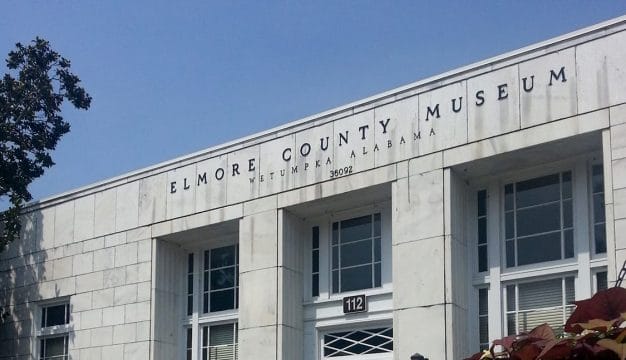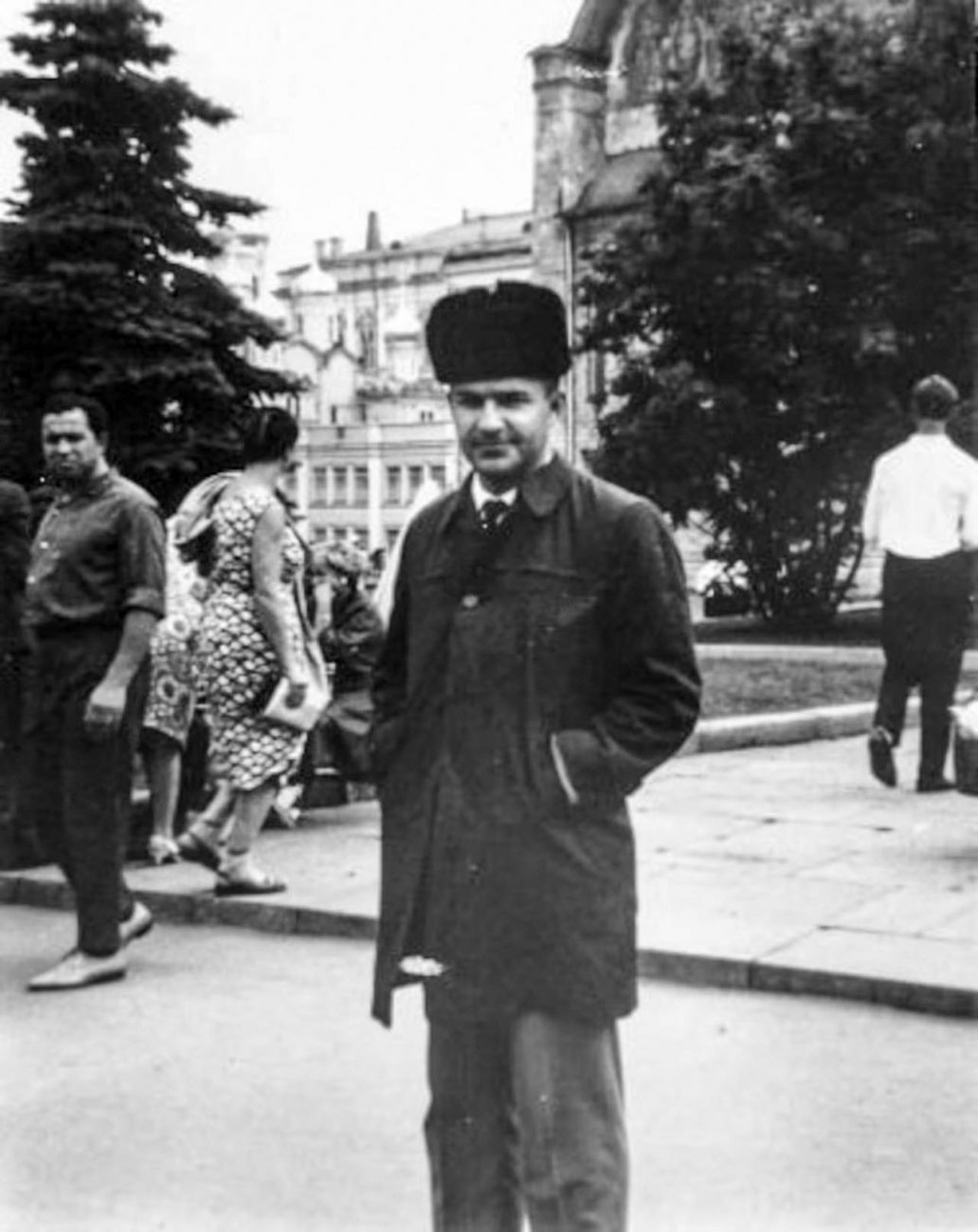Jay Higginbotham
Prieur Jay Higginbotham (1937-2017) was an author, historian, and activist whose major accomplishments included founding the Mobile Municipal Archives and writing several important works about southern history and international relations. He is best known for his award-winning Old Mobile (1977) and for a nonfiction work about the Soviet Union in the 1960s called Fast Train Russia (1981), which sets the conciliatory tone for Higginbotham's subsequent approach to international politics. Although a native of Pascagoula, Mississippi, Higginbotham's primary professional accomplishments took place during his residence in Mobile, Mobile County.
Born on July 16, 1937, to Prieur Jay Higginbotham Sr. and Vivian Inez Perez Higginbotham, Jay Higginbotham spent the majority of his earliest years in Pascagoula. He was one of three children. He attended Pascagoula High School, playing football and running track. After graduating in 1955, he attended the University of Mississippi in Oxford, completing a history degree in 1960. He then pursued graduate studies at the City College of New York in New York City and at American University in Washington, D.C.
After a brief stint working as an assistant clerk with the Mississippi House of Representatives, Higginbotham moved to Mobile in 1962, where he began teaching in the public school system. In 1966, Higginbotham made a journey around the world, visiting 42 countries, climbing Mount Fuji in Japan, and traveling across Russia on the Trans-Siberian Railway. The latter experience would serve as the subject matter for his memoir, Fast Train Russia. Higginbotham also began making a name for himself as a historian with a focus on the American South. Two of his earliest works were The Mobile Indians (1966) and Mobile: City by the Bay (1968).
Higginbotham married Alice Louisa Martin of Montgomery, Montgomery County, on June 27, 1970; they would have three children. In 1973, he took a job with the Mobile Public Library to oversee its Local History Division's acquisitions and other daily functions. In 1977, he published Old Mobile, his most significant historical work. The book received several literary awards, including the General L. Kemper Williams Prize from the Louisiana Historical Association in 1977, an award of merit from the Mississippi Historical Society in 1978, the Alabama Library Association nonfiction award the same year, and the Gilbert Chinard Prize in 1978 from the Institut Français de Washington and the Society for French Historical Studies.
In 1981, Higginbotham's memoir of his trip around the world, Fast Train Russia, was published in the Soviet Union; it appeared in an American edition in 1983. In the book, Higginbotham describes his travels from Nakhodka through Vladivostok, Irkutsk, Novosibirsk, Omsk, and other cities before his arrival in Moscow. Initially viewed as an outsider by the other passengers, Higginbotham earned the respect and friendship of his fellow adult travelers by making friends with the children on the train. He subsequently attained an almost celebrity status among his fellow passengers. The book, which includes brief excerpts from Higginbotham's journal before each chapter, captures the poignant humanity of the Soviet citizens on the train and shows readers how Higginbotham was able to separate the political from the humane. Higginbotham made several subsequent trips to the Soviet Union and made numerous speeches and appearances on Soviet television and broadcasts across Asia in which he advocated greater friendship between the Soviet Union and the United States.
Higginbotham received the Mobile Scroll of Merit Award and the Elizabeth Gould Award in 1981. He was instrumental in founding the Mobile Municipal Archives in 1983, serving as its director until his death. He also helped found the Mobile Association of Sages and Savants, a literary club that brought internationally known authors to the city. In 1986, Higginbotham and Russian poet Yevgeny Yevtushenko helped create a sister-city relationship between Mobile and the Russian city of Rostov. In 1993, he visited Havana, Cuba, and was an organizer of the Society Mobile-La Habana, helping to establish the first sister-city relationship between the United States and Cuba. Politically, he advocated a doctrine of American reconciliation between countries such as the USSR and Cuba rather than promoting a particular political stance. Higginbotham received the Alabama Humanitarian Award in 1999, and he became director emeritus of the Mobile Municipal Archives in 2001.
In his later years, Higginbotham devoted much of his time to the Red Cross and to various boards and commissions in the Mobile area. He helped to establish the Founders of Old Mobile Society, chaired the Mobile Tricentennial Commission, and was active in the League of Women Voters. The Special Collections Department of the University of Mobile's J. L. Bedsole Library holds his personal papers and correspondence from 1986 through 2009. His writings have been translated into more than two dozen languages and have been distributed in more than 125 countries. Higginbotham died on June 20, 2017, in Mobile.
Selected Works by Jay Higginbotham
The Mobile Indians (1966)
Mobile: City by the Bay (1968)
Fort Maurepas: The Birth of Louisiana (1969)
Old Mobile: Fort Louis de la Louisiane, 1702-1711 (1977)
Fast Train Russia (1981)
The Vital Alliance: Speeches and Statements on Soviet-American Relations, 1979-1988 (1988)
Discovering Russia: People and Places (1989)
Mauvila (1990)
Further Reading
- James G. Lesniak, ed. "Higginbotham, (Prieur) Jay." In Contemporary Authors, p. 239. Detroit, Mich.: Gale, 1992.
- Lloyd, James B. Lives of Mississippi Authors, 1817-1967. Oxford: University Press of Mississippi, 2009.






